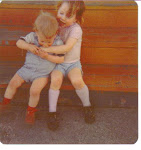I don't believe the author is professing the need for a fascist state, just stating the obvious.
If you are at all concerned, I suggest you click the link at the bottom and read the entire article.
Living in a Fascist State
On message
"But I venture the challenging statement that if American democracy ceases to move forward as a living force, seeking day and night by peaceful means to better the lot of our citizens, then Fascism and Communism, aided, unconsciously perhaps, by old-line Tory Republicanism, will grow in strength in our land." -Franklin D. Roosevelt, November 4, 1938
By Lewis H. Lapham
10/21/06 "Harper's Magazine", October 2005, pps. 7-9 -- -- In 1938 the word "fascism" hadn't yet been transferred into an abridged metaphor for all the world's unspeakable evil and monstrous crime, and on coming across President Roosevelt's prescient remark in one of Umberto Eco's essays, I could read it as prose instead of poetry -- a reference not to the Four Horsemen of the Apocalypse or the pit of Hell but to the political theories that regard individual citizens as the property of the government, happy villagers glad to wave the flags and wage the wars, grateful for the good fortune that placed them in the care of a sublime leader. Or, more emphatically, as Benito Mussolini liked to say, "Everything in the state. Nothing outside the state. Nothing against the state."
The theories were popular in Europe in the 1930s (cheering crowds, rousing band music, splendid military uniforms), and in the United States they numbered among their admirers a good many important people who believed that a somewhat modified form of fascism (power vested in the banks and business corporations instead of with the army) would lead the country out of the wilderness of the Great Depression -- put an end to the Pennsylvania labor troubles, silence the voices of socialist heresy and democratic dissent. Roosevelt appreciated the extent of fascism's popularity at the political box office; so does Eco, who takes pains in the essay "Ur-Fascism," published in The New York Review of Books in 1995, to suggest that it's a mistake to translate fascism into a figure of literary speech. By retrieving from our historical memory only the vivid and familiar images of fascist tyranny (Gestapo firing squads, Soviet labor camps, the chimneys at Treblinka), we lose sight of the faith-based initiatives that sustained the tyrant's rise to glory. The several experiments with fascist government, in Russia and Spain as well as in Italy and Germany, didn't depend on a single portfolio of dogma, and so Eco, in search of their common ground, doesn't look for a unifying principle or a standard text. He attempts to describe a way of thinking and a habit of mind, and on sifting through the assortment of fantastic and often contradictory notions -- Nazi paganism, Franco's National Catholicism, Mussolini's corporatism, etc. -- he finds a set of axioms on which all the fascisms agree. Among the most notable: continued here
http://www.informationclearinghouse.info/article10710.htm






























No comments:
Post a Comment